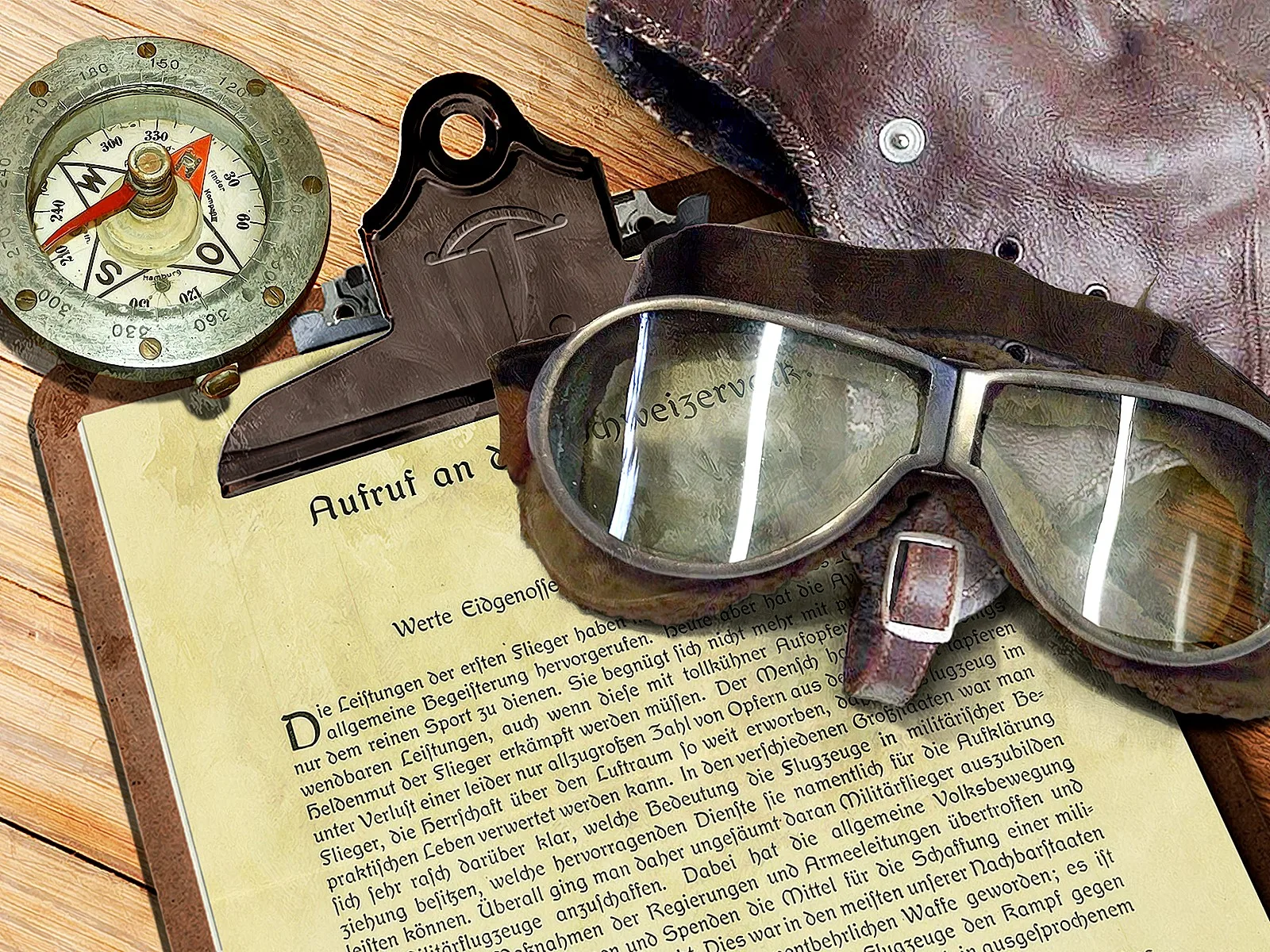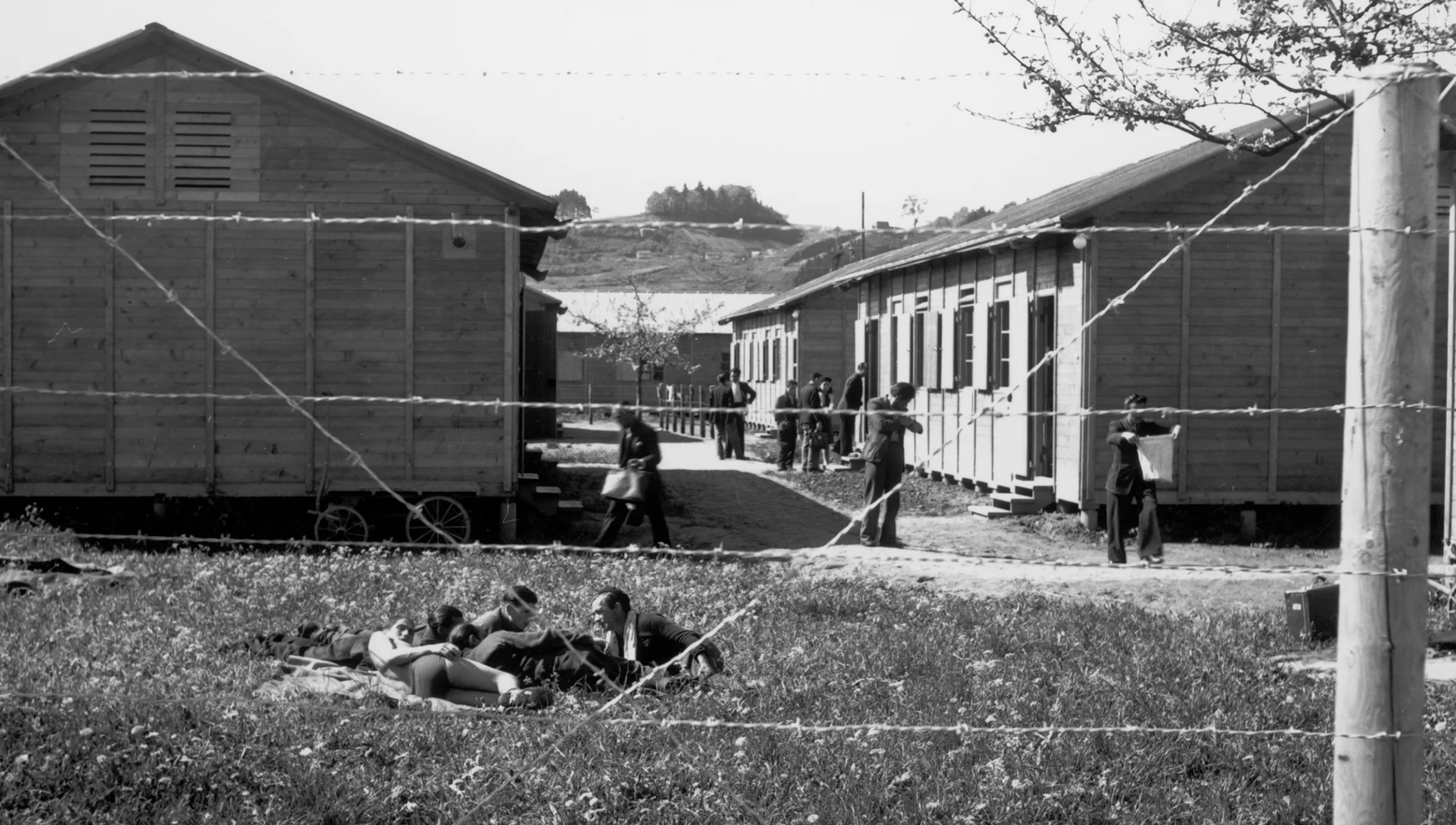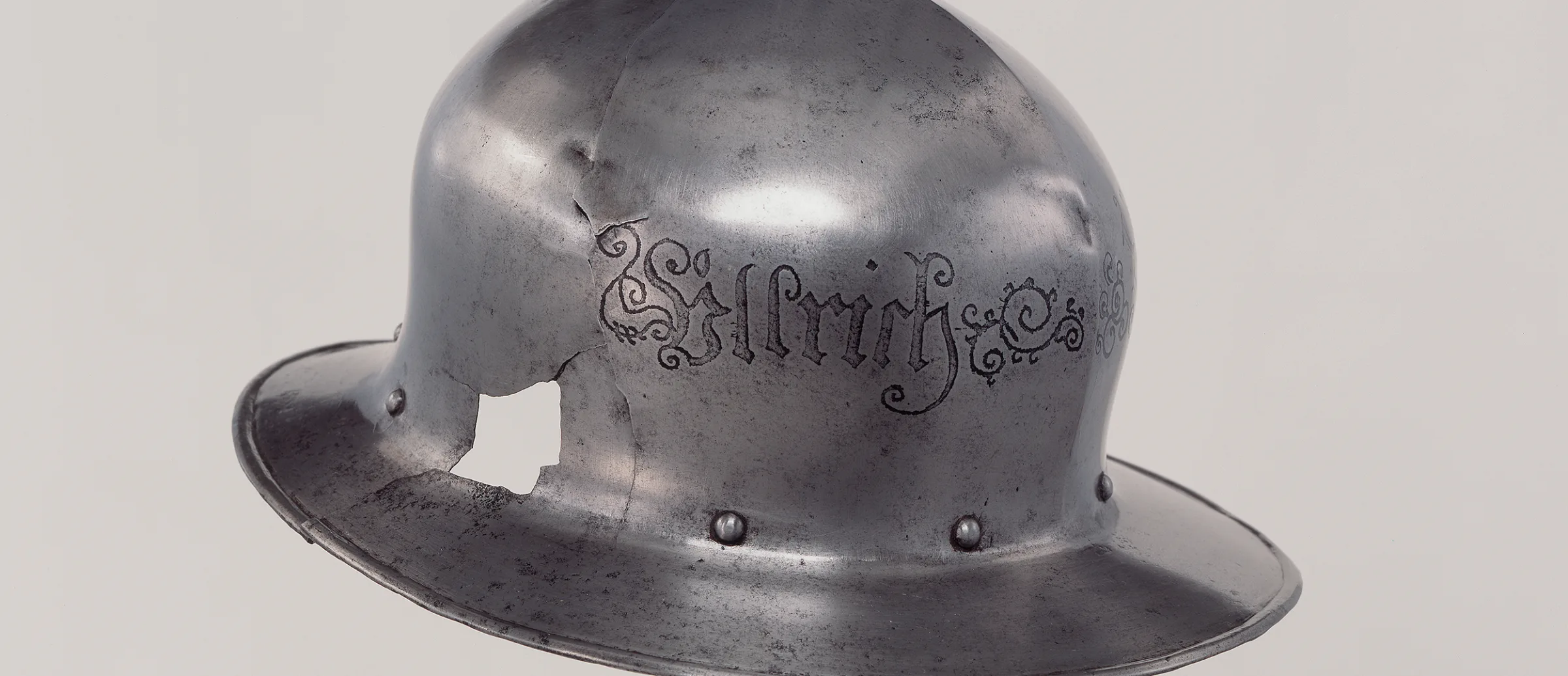
Photo: Jeck Basel / Rolf Jeck
Mass exodus from Basel
A few days after the invasion of the Netherlands and Belgium by the Wehrmacht, the Swiss defence force reported German troops massing on the country’s northern border. The civilian population in Basel, particularly vulnerable as a border town, was seized by panic. Many fled to the interior of the country and to western Switzerland.
‘The journey went very well. The trains were full. It took a long time, but the children were cheerful and well behaved. From Bern onwards we were with the three younger Speiser-Riggenbach children, who were going to acquaintances near Coppet. Marianne Alioth also travelled with us to Lausanne. She was going to the Zellwegers in Montana. You could still see all sorts of acquaintances from a distance. […] It’s so hard to imagine that Basel is in peril. I hope this letter finds you in peace,’ wrote Elisabeth Staehelin-Iselin to her husband, who had stayed behind in Basel, from her ‘safe haven’ in Prangins on Lake Geneva.
The inhabitants of the city of bridges on the Rhine had been increasingly fearful since 10 May 1940 – the start of the Wehrmacht’s rapid western offensive – that their virtually unfortified hometown could be a sitting duck for the German troops. The growing unease was then compounded by tension, because on 14 May, based on reports from the military intelligence service, the city command post in Basel was expecting an imminent attack. In Basel the highest level of alert was activated, and the mass exodus from the border city began.
PANIC IN BASEL
‘You can get a striking picture of the overhasty departures if you realise that all the relevant shops have sold out of rucksacks. Barely had the green and red mobilisation posters been emblazoned across the public noticeboards than the first conscripted militia soldiers were already making their way to the main railway station to get to their assembly points. There was an indescribable confusion of officers and soldiers, and of civilians rushing to leave Basel. A constant stream of hire cars rolled up and porters carted heavy luggage this way and that.’ For historian Georg Kreis, this was ‘a demoralising counter-offensive by the civilians, while the soldiers were marching in the direction of the border and the battlefield’.
The civilian evacuation plan put in place by Basel’s governing council in 1939 was no longer in effect, and panic was spreading. The management of Hoffmann-La Roche relocated to Lausanne, the board of directors of Baloise Insurance moved to Geneva and the diplomats from the Bank for International Settlements fled to Château-d'Oex in the Canton of Vaud. The public administration departments worked frantically to remove ledgers, land registers and court records, and as day broke many Basel inhabitants woke to find their local bakeries locked and deserted, the owners having made a run for it in the night.
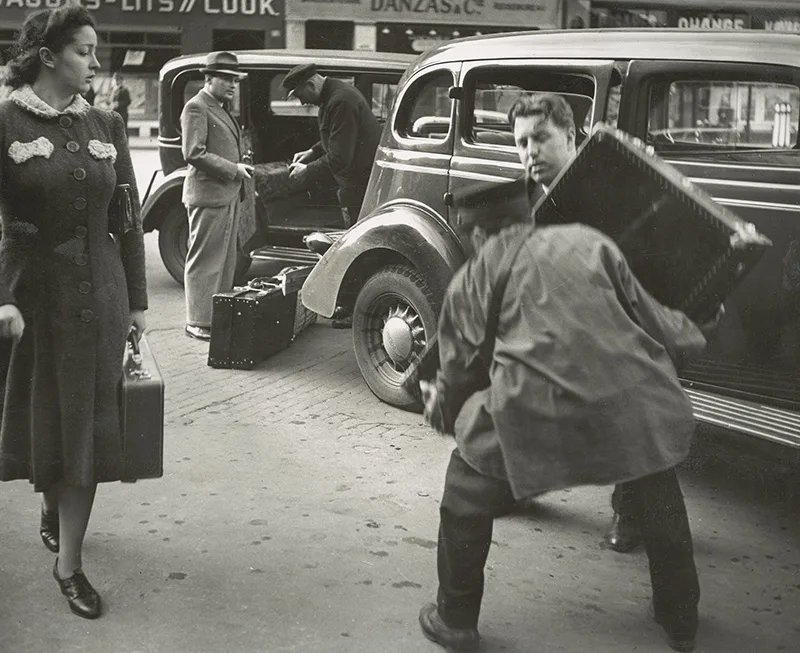
Anyone who was able to left Basel in May 1940 with kit and caboodle.
Photo: Jeck Basel / Rolf Jeck
HERR UND FRAU WIEDERKEHR
‘On Sunday and Monday the exodus ceased. During the previous day, it had taken on such dimensions that it could be referred to as an actual voluntary evacuation. For hours, ticket and baggage counters in the main railway station were besieged. Mountains of luggage piled up. The luggage wagons were totally inadequate, and dozens of goods wagons had to be coupled to the trains. Last night there was an incessant stream of people leaving the city on foot with children and carts,’ wrote the Basler National-Zeitung on Tuesday 14 May 1940, while Elisabeth Staehelin-Iselin in Prangins reported to her husband: ‘Ms Speiser is said to have been stopped 80 times from Basel to Coppet. There are a lot of checks on cars… on all road users in general. Seemingly the search is on everywhere for quislings and 5th columnists. I’ve read that in Basel you can’t even make calls from public telephones anymore. It’s so peaceful and beautiful here. It’s true that we’re a little out of the way, when the newspapers are already old when we get them and we don’t listen to the radio, and we’re living in idyllic countryside. Here, it’s hard for us to imagine that Switzerland is still in danger. I still find it inconceivable that the Germans are continuing to have such successes.’
On 17 May, the National-Zeitung was headlined ‘Fühlbare Entspannung’ (Palpable relief). In just three days, around 25,000 people had fled Basel. But it wasn’t just the people of Basel who had been galvanised into action by – as it turned out – a military feint by the Wehrmacht close to Switzerland’s northern border. In total, it is estimated that during the Whitsun holiday a hundred thousand people from Zurich and northern Switzerland sought refuge in the interior and the west of the country. Soldier Max Frisch, who was stationed at the Mutschellen Pass ‘on the night we were expecting the German invasion’, recorded an episode of this exodus in his Dienstbüchlein (service book): ‘Darkness, vehicles went past with flashing blue lights, columns of private cars from Zurich; […] The cars heavily laden, trunks, bags, fur coats, even candelabra, the rolled-up carpets on the roof… I was filled with indignation. The [soldier] with the torch, the heavy cable reel on his back, had a more down-to-earth head on his shoulders: They’ve got a holiday home – we haven’t!’
On 26 May, Elisabeth Staehelin-Iselin advised her husband: ‘I have decided to come home on Wednesday, arriving at 4.25 pm.’ On that day, 26 May 1940, British troops were surrounded at Dunkirk, and in unscathed Basel school lessons got under way again – while those who had so hastily fled would continue for some time to be mocked with the title ‘Herr und Frau Wiederkehr’ (Mr and Mrs Back Again).
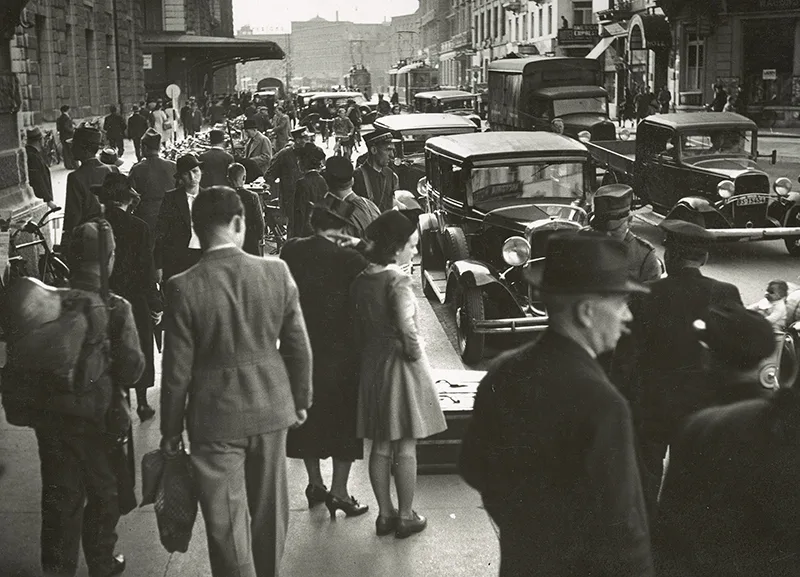
Quick to leave, and back again just as quickly: those who ran were later showered with ridicule.
Photo: Jeck Basel / Rolf Jeck

